co-creating meaningful learning experiences between schools and their local communities, by developing projects focused on locally relevant challenges, aligned with the school's needs and context.
the school community, namely by collaborating with teachers, to embed open schooling and research & innovation practices in their daily-life, stimulating student's active citizenship and school performance.
Citizen-science
Makerspace
(with Precious
Plastic equipment)
STEM
workshops
Co-creation
and stakeholder
participation
Teacher training

Project Manager
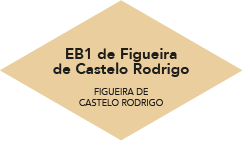
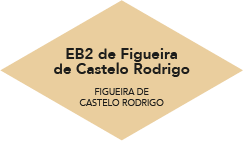
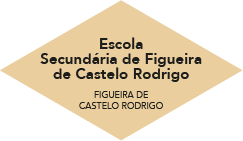
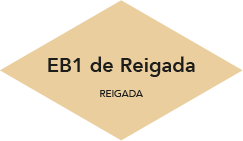
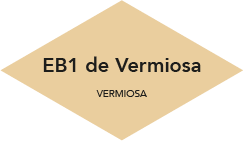
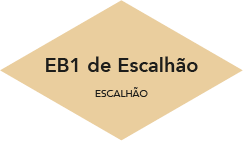
OSHub-PT supports and works together with schools in the co-creation and integration of relevant and sustainable strategies that promote the development of active citizens in addressing local challenges, through research and innovation projects in collaboration with relevant actors.
Target public:
The school community as a whole, with more continuous actions targeted at teachers and students.
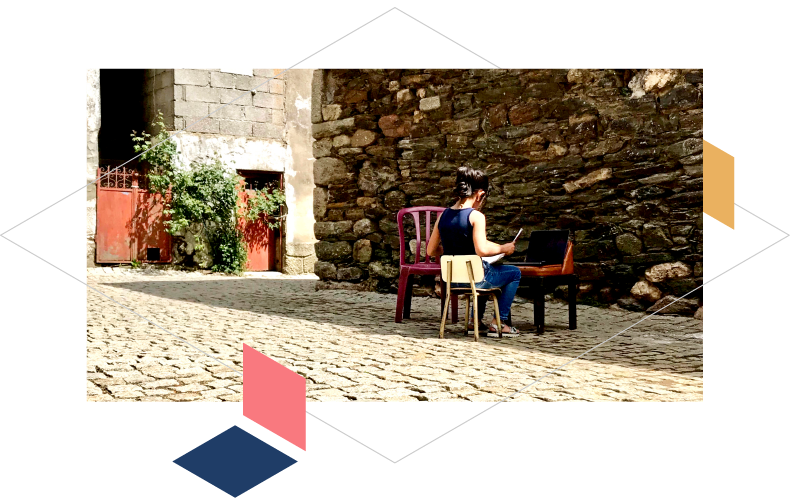
OSHub-PT is based in the county of Figueira de Castelo Rodrigo, in a border, low density territory located in the northeast interior of Portugal, with a population density of 12 inhabitants/km. The population of this region has traditionally limited access to STEAM-related initiatives and the importance of community development has been identified by the EU programme Interreg V-A-Spain-Portugal (POCTEP). This is associated with low school performances and high rates of school failure, low innovation and reduced capacity for investment and entrepreneurship. On the other hand, it is a region that entails an immense potential regarding natural, archaeological and historical heritage, including two UNESCO World Heritage sites – the PreHistoric Rock Art Sites in the Côa Valley and Siega Verde and the Alto Douro Wine Region. Moreover, it is part of the Network of Historical Villages of Portugal and of the Douro River Cruises Route, receiving several hundred thousand tourists per year.
OSHub-PT has been working as a facilitating agent in the community, promoting open, inclusive and interdisciplinary processes in which citizens and community groups collaborate with researchers, professionals from enterprises and policy-makers to tackle community-defined problems at local and regional levels.
In particular, at school, OSHub-PT has been collaborating directly with school heads and teachers in providing structural support and an interface for the integration of Open Schooling approaches in the school organisational culture, so that schools become effective and autonomous drivers of community development
and well-being.
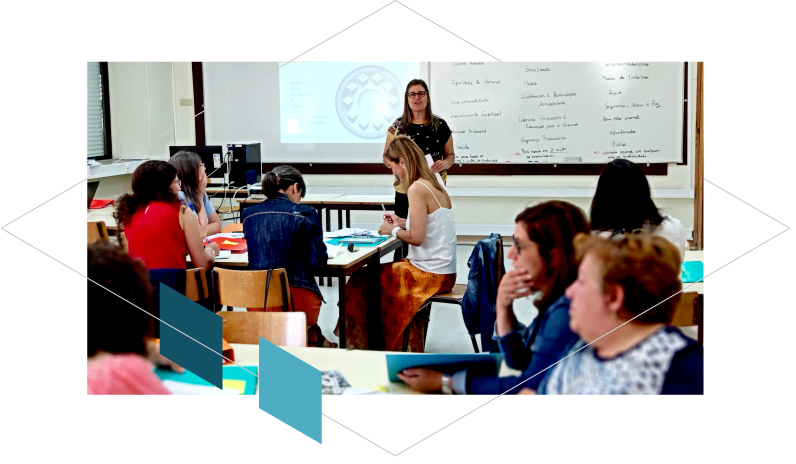
The role of OSHub-PT in the establishment of this school-based OSHub model entails:
1) To liaison with the Municipality and other relevant partners so that this strategy can become a territory-wide approach (vs. a focal initiative at a school);
2) To work directly with schools, supporting teachers and school boards in the integration of Open Schooling approaches, in both formal and non-formal settings, including:
- Co-designing, developing and implementing curricula/projects based on best practices;
- Documenting and evaluating the process and practices;
- Facilitating the dialogue with community stakeholders;
- Ensuring a continuous training program for teachers and school heads;
3) To advocate for the importance of Open Schooling with school boards and decision-makers, facilitating its integration at the school organisational culture.
4) To foster the development of local networks amongst schools and community stakeholders to exchange knowledge /experience;
OSHub-PT has been working, since 2018, with the schools of the municipality of Figueira de Castelo Rodrigo to promote the Open Schooling approach, by fostering environments where schools, in cooperation with stakeholders, become agents of community well-being by engaging in real-life projects that meet societal needs.
This approach takes place in the Citizenship and Development classes, by looking at current societal challenges through a local scope to raise lifeworld needs in the community that can be addressed by students' projects.
Through co-creation tools, such as Design-Thinking and Business Model Canvas, students get involved throughout the entire process of the project, which is shaped along the way according to their progress.
The Portuguese hub aims to create chances for the professional development of teachers, empowering each one to autonomously and sustainably implement strategies that bring schools closer to research and innovation, contribute to promote student's active citizenship and shape schools to become local agents in their communities.
Read more
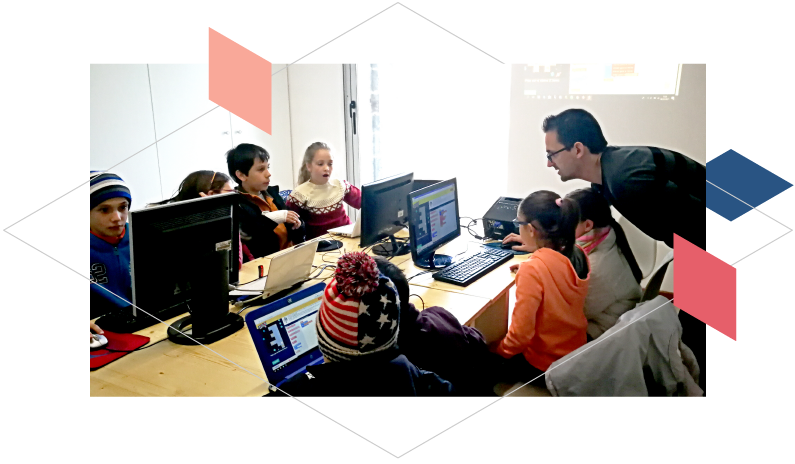
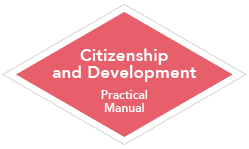
Practical experience/evidence-based manual aimed at integrating Open Schooling in the Citizenship and Development discipline. This resulted from the collaborative work with 17 teachers in 2019 and 2020.
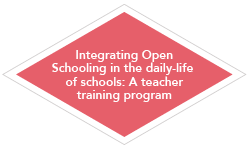
Training program for teachers on how to develop and implement an Open Schooling project co-creatively with students. This training program promotes a project based methodology settled on equity, inclusion and democracy. The main characteristics of this methodology are focused on: tackling local challenges/opportunities, collaborating with stakeholders, sharing with
the local community and evaluating the
impact of the project.
